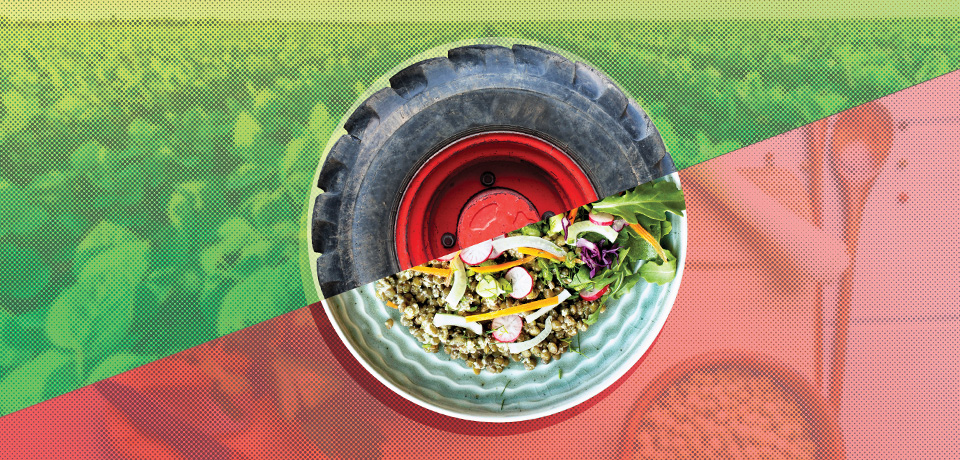In recent years, interest has been growing from consumers who want to know where their food comes from. There’s also been an increased need for those in the agriculture industry to share their stories with this increasingly urban audience.
With CO-OP® Agro Centres and Food Stores, we’re able to serve as a bridge between the two groups. We’re unique in serving and supplying farm customers with products and services, while also directly and indirectly purchasing their products, largely for the greater consumer market.
This is a real farm-to-table story.
More than a story
Where does your food come from? Here. That’s the simple answer.
Walk into a Co-op Food Store, and you’ll take in the diversity of Western Canadian products. Of course, you’ll see basics such as meat, milk, eggs, breads and an increasing amount of fruits and vegetables, both fresh and frozen. But don’t forget flour, oats, pulses (canned and dried), honey, mustard and canola oil, not to mention products such as perogies, chips, juice, jerkies and breakfast cereals, among others.
Co-op has a long tradition of sourcing local food items and supporting local farmers, ranchers and food manufacturers who grow, raise and produce our food. We continue to make strides to support and increase the prevalence of food products sourced in Western Canada, such as the availability of greenhouse-grown tomatoes and cucumbers through the winter months.
We develop relationships with producers and businesses, working together to ensure high-quality products are available to Co-op customers. We can provide stability and a platform to small businesses to expand and enter new markets with their own products. These relationships can also result in the development of exciting and innovative new CO-OP® brand products.
Investments in innovation
Innovation is often thought of as being associated with the latest technology. Innovation is, however, also about relevance, developing a product that is rare or doesn’t exist.
For instance, as common as pickles are, it’s not common to make them in Canada – at least commercially. According to Statistics Canada, pickled cucumber and gherkin imports have increased more than 600 per cent since 2000, with 94 per cent of imports coming from the United States and India. At the same time, cucumber acreage in Canada has dropped by half, and production has decreased a third.

We hope to offer customers a local alternative. Last October, Federated Co-operatives Limited (FCL) provided $500,000 towards the expansion project of the Saskatchewan Food Industry Development Centre Inc. (Food Centre), which will increase value-added processing, extrusion capacity, and research and development.
The project includes a new bottling line and pasteurization system for canning low-acid foods – a system which isn’t commercially available in Western Canada – that will help produce local pickles and other products such as jams, mustards and salsas through our manufacturing partners.
Investments like this are a necessity in both agriculture and the food manufacturing industries. They can come from the need to be more competitive, to increase sustainability and even to respond to the changing diets and culinary experiences of Western Canadians.
What we need to remember is that this story is not just about pickles. It’s about providing safe, nutritious food to Western Canadians, bolstering our local economies and helping our communities thrive.
This is our story, which is also your story.






